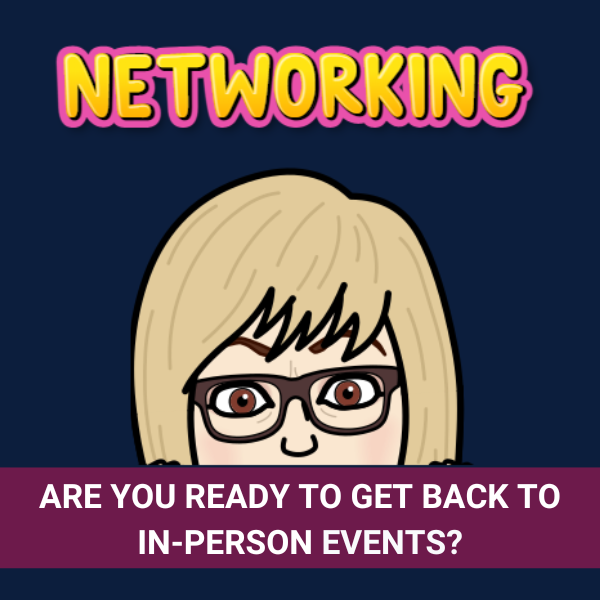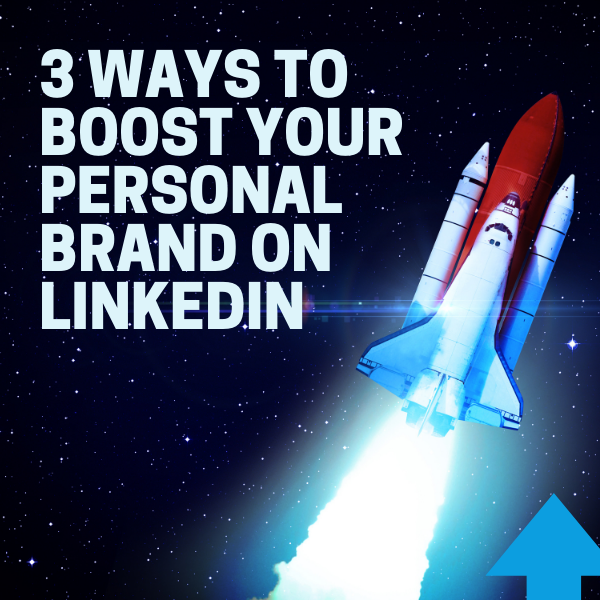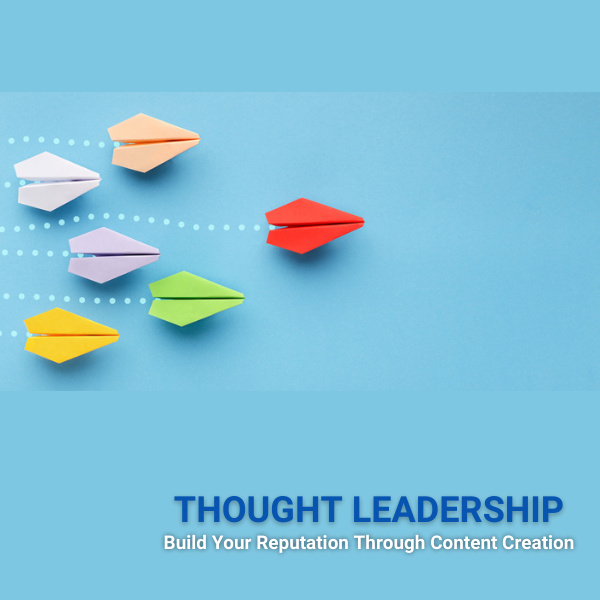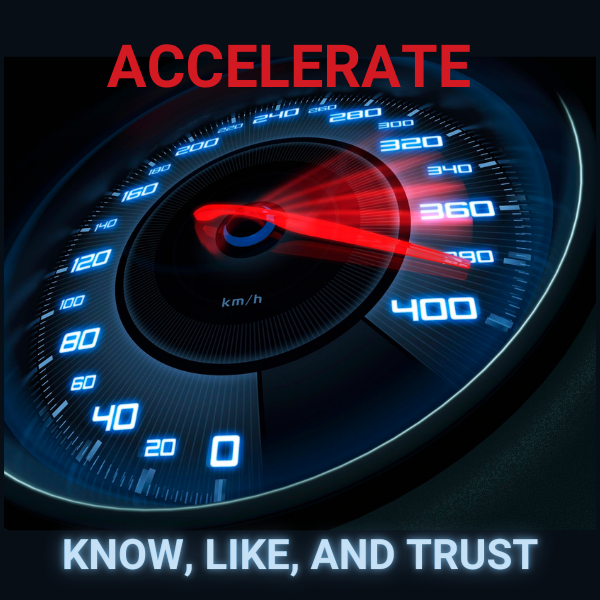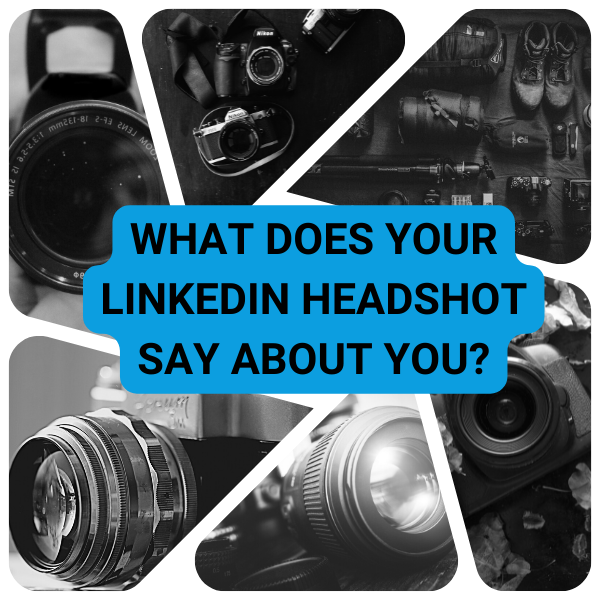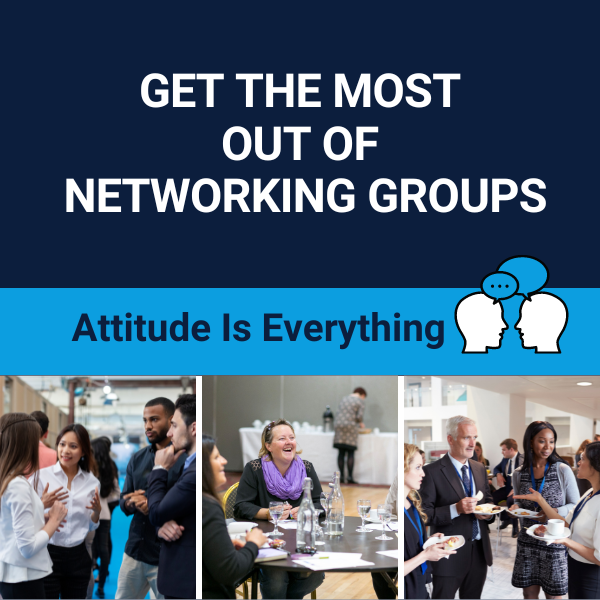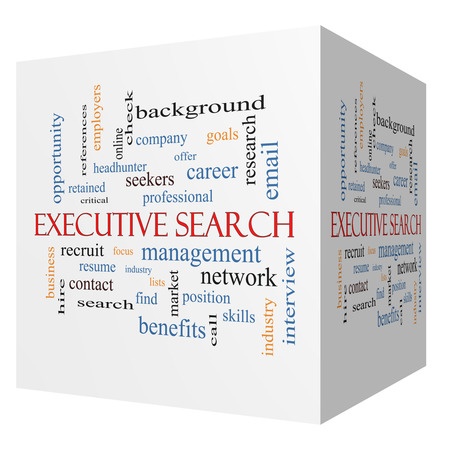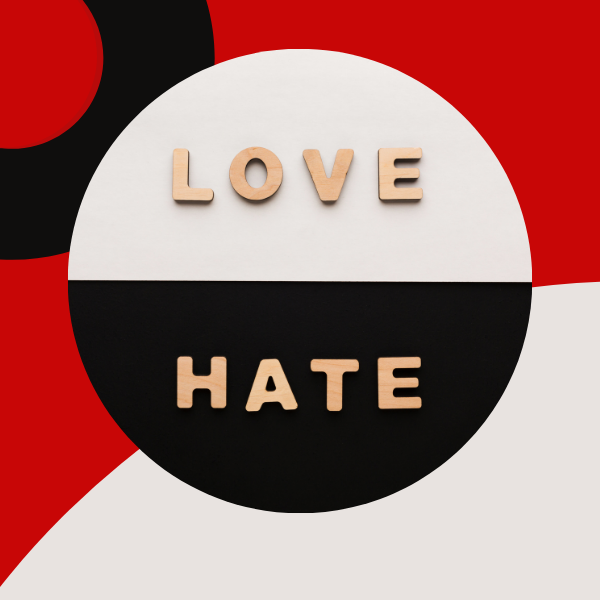Successfully Navigate Your Next Networking Event (Even If You Dread Them)
After two years of virtual everything, in-person events are back. I’m headed to 2 holiday networking events this week. It’s the first time I’ll be going to a local industry event in over two years. I’m excited and a bit nervous.
Most people I talk to say they hate networking events. They feel awkward and uncomfortable. They are tired of boring conversations. And they feel like they never met anyone anyway.
If that’s you, I’m going to help you change that right now.
CHANGE YOUR ATTITUDE
Let’s start with attitude. A lot of people don’t like networking because they think of it as transactional. They are going to an event to ask people for help.
Wrong attitude.
A better attitude, go to events to meet people, and think about how you can help them.
While walking into a room of strangers who seem to all be friends isn’t easy for most of us. There are many ways to make it easier, even fun.
Three Ways To Boost Your Personal Brand On Linked In
Some think the idea of having a personal brand is something new. It’s not. I first read a book about personal branding almost 20 years ago. Fast Company published an article about personal branding—”The Brand Called You” by Tom Peters—in 1997. Whether you realize it or not, you already have a personal brand. It’s what people say and think about you when you’re not around. You probably think of it as your reputation.
Everything you say and do in person and online affects your personal brand. As your face to the business world, your LinkedIn profile contributes to that. You’re missing opportunities if you’re not using your profile banner and Featured and Professional Experience sections to boost your brand.
LinkedIn Profile Banner
I’m surprised how many LinkedIn profiles still have LinkedIn’s default background image. The current two-tone grey and cream default background is more subdued than the previous shades of LinkedIn blue with connected dots. Still, it’s ineffective. Not uploading a background image makes your profile, and by extension, you, look generic.
Stock images of cityscapes, landscapes, etc., that I’ve seen many people use on their profiles are better than LinkedIn’s default. If you decide to use stock images, look for photos that are related to your business, career or industry in some way. And make sure to purchase the rights to use them. Otherwise, you could be liable for copyright infringement.
Unlock Thought Leadership: A Guide To Content Creation On LinkedIn
If you want to differentiate yourself from the millions of others on LinkedIn, developing a reputation as a thought leader should be one of your strategies. If you’re new to LinkedIn or just new to the idea of engaging with other members, the easiest way to begin is by commenting on other people’s posts.
Engagement doesn’t mean scrolling madly through your feed, adding comments like “great post!” or “Love it!” That’s people who race around networking events, handing their business cards to every stranger because they just lost their job. Not a good look.
When people like me talk about “commenting,” they mean sharing at least 5-6 words that indicate you at least read the post. Sharing a few lines about why you liked the post is better. Providing insights that add to the conversation is better still.
Once you’ve got your footing, it’s time to begin creating and sharing content.
LinkedIn supports several options based on your purpose and comfort zone.
There are several content options. LinkedIn supports a variety of content that you can use based on your purpose and comfort zone. Text posts can be short or long, depending on the time you want to spend. Articles like this, sometimes referred to as long-form posts, are used to delve more deeply into a topic.
How To Accelerate The ‘Know, Like, and Trust’ Factor With A LinkedIn Profile Video
If you’re looking for a new opportunity or potential clients, you need to be on LinkedIn. At this writing, there are 850 million members in 200 countries around the globe, according to LinkedIn stats.
So that means while LinkedIn is full of opportunities, it’s also a big, noisy place. One of the best ways to stand out is with a profile video. Uploading a profile video, which plays silently for three seconds when someone clicks on your profile, gives people the chance to “meet” you: to learn a bit about who you are and what you do.
We’ve all heard the adage that people prefer to hire and work with people they know, like and trust. Creating a LinkedIn profile video can help move the getting-to-know-you process forward.
This feature was first rolled out in 2021 as Cover Story. It was updated and renamed Profile Video in early 2022. The change included providing stats on how many people have viewed your video.
Despite being widely available, many members still haven’t uploaded a profile video. They’ve decided to pass on a feature that can help them immediately stand out.
Make It Easy For Recruiters To Say Yes To You
Most recruiters and hiring managers are sourcing candidates on social media, particularly LinkedIn. In fact, 53% of recruiters said they found the highest quality candidates on Linkedin when responding to Jobvite’s 2021 Recruiter Nation Survey. This is great news if you have a robust, optimized LinkedIn profile.
As a recruiter I spent hours on LinkedIn sourcing candidates, often scrolling through 500+ possible matches. Some were easily eliminated due to missing or inappropriate photos. My all-time favorite unsuitable photo is the woman wearing a wedding gown, veil, and all.
Potential candidates fell into 2 categories:1) Yes, contact them immediately and 2) they might be a possibility. The one thing that consistently moved candidates from maybe to yes was if it was easy to contact them.
The point is, don’t make the mistake of thinking if recruiters want to contact you they will track you down or use an InMail. Unless they think you are a perfect candidate, they may not. You can increase your odds by making it easy for them by including contact information on your LinkedIn profile.
Is Your LinkedIn Profile Photo As Good As You Think?
Like most of my colleagues, I tell my clients that having a photo on their LinkedIn profile is essential. For one thing, it improves your visibility. Profiles with profile pictures can get up to 21 times more views than profiles without them, according to LinkedIn.
A strong, engaging profile photo can help you get a job or land new clients. It’s the first thing recruiters see when searching LinkedIn for potential candidates. It’s the first thing people who’ve been given your name see when they visit your profile to learn more about you. If you don’t have a photo, most people will wonder why.
Your LinkedIn profile represents you on the business world stage. So, it’s important to post a headshot with a professional yet approachable look. While “professional” varies by industry, smiles are universal.
While I know all this and preach it to my friends and clients, I was surprised at the impact things like a photo’s background had on people’s opinions. Although, I’m not big on sharing photos of myself, I thought providing this example was worth it.
Can You Answer This Key Question?
Some people go into interviews and wing it. Others prepare ahead of time. Usually this includes researching the company and planning responses for commonly asked interview questions.
Questions like “what is your management style?” and “where do you see yourself in 5 years?”
But, there’s one key question they often don’t prepare to answer.
“Why do you want to work here?”
When I was recruiting, I always asked candidates if they knew anything about the company. The smart ones would tell me a few things they learned while researching the company. Things they liked, that made them want to work there.
The unprepared would say “no” and leave it at that.
How To Get The Most Out Of Networking Groups
After 2 plus years, in-person networking events are back. While you may not find pre-pandemic crowds yet, attending these events is an important part of the job-search process.
The truth is that people like to do business with people they know, like, and trust. This philosophy extends when it comes to filling open positions. It’s one of the reasons that companies have employee referral programs.
It’s also one of the reasons you should have been attending virtual events, and have to ease back into in-person. There are many networking opportunities out there.
Industry Events
If you’re looking for a new opportunity industry events are the best way to meet your peers. Attending industry conferences is a great way to meet people at various levels from different parts of the country.
Recruiters Don’t Work For You
I get a lot of questions about recruiters. The most often asked question is who the recruiter works for. The short answer is the recruiter isn’t working for you.
While, someone who’s out of work recently told me it’s cruel to say this, it’s true.
Retained and contingency recruiters work for the one who pays them. And that’s the employer.
Retained recruiters are paid a fee to find candidates and are generally paid whether the employer hires them or not. Contingency recruiters are paid only if the employer hires one of their candidates. Their fee is a percentage based on the candidate’s first year salary.
Words That Turn Hiring Managers Off (And Words They Love)
I can’t count the number of times I’ve seen someone describe themselves as a team player on their resume. I can say it’s way too many.
However, descriptors like team-player and out-of-the-box thinker make hiring managers cringe according to a 2021 CareerBuilder survey* of hiring managers and human resources pros.

